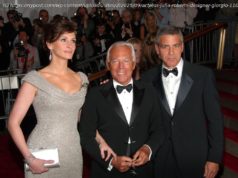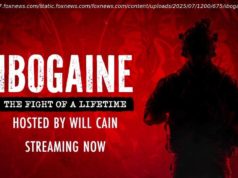In 2017, music is shaping the Vietnam War in a new PBS film.
War is ugly. A horrific mix of hate and hurt, its signature sights — crimson blood on anguished faces, burnt earth spitting black smoke, lethal fireworks in starry skies — pierce human memory like shrapnel through flesh.
Before it’s seen, however, war is heard. A cacophony of sputtering bullets, bellicose bombs, roaring jet engines and desperate bellows, its soundtrack is distinct and unsettling.
On the battlefield, the Vietnam War was just as shrill as the wars that came before it. Thanks to rock’ n’ roll, however, it also had a sound all its own — at times joyful, sad, angry, hopeful, woeful, inspiring, fearful and forgiving. Sometimes—in The Beatles’ 1970 song Let It Be, for example — even peaceful.
“Music is the fastest art form there is. Two notes, and you feel something, ” says documentarian Ken Burns, whose latest film series with partner Lynn Novick, The Vietnam War, premieres Sept. 17 on PBS. Music plays a lead role.
“The music of the time is a character in the film, ” says Novick, who co-directed The Vietnam War with Burns. “It helps you understand the experience of people living through the Vietnam War better than almost anything else.”
In truth, music isn’ t one character in the film; it’s three: popular music from the period, an original score by Academy Award-winning composers Trent Reznor and Atticus Ross, and interpretations of traditional Vietnamese melodies arranged and recorded by Grammy Award-winning cellist Yo-Yo Ma and The Silk Road Ensemble. Each adds something special to the 10-part series, the sounds of which make Vietnam reverberate in America’s eardrums just as loudly today as it did 50 years ago.
Retired Air Force general Merrill McPeak opens The Vietnam War ’s eighth episode with commentary on music’s role in the cultural revolution coinciding with the war.
“The late’ 60s were a kind of confluence of several rivulets, ” says McPeak, a fighter pilot who flew 269 combat missions in Vietnam. “There was the anti-war movement itself, the whole movement towards racial equality, the environment, the role of women. And the anthems for that counterculture were provided by the most brilliant rock’ n’ roll music that you can imagine.”
Meanwhile, The Beatles’ 1968 song While My Guitar Gently Weeps plays hauntingly in the background, the phrase “I look at the world, and I notice it’s turning” bleeding from George Harrison’s vocals.
That’s the kind of musical synergy Burns and Novick sought in The Vietnam War. They achieved it with the help of 120 licensed tracks from the Vietnam era.
“While there’s popular music in other films we’ ve made, this was on a very different scale, ” says Sarah Botstein, who co-produced The Vietnam War with Burns and Novick. Acquiring the rights to use music for the film, she says — songs such as Bob Dylan’s A Hard Rain’s A-Gonna Fall and the Rolling Stones’ Gimme Shelter — took five years from start to finish.
Among the record companies that joined the project was Universal Music Enterprises, which licensed music from The Beatles, Marvin Gaye, The Temptations and many others for the film and its companion soundtrack album.
“This specific project was brought to us by Jeff Jones of (The Beatles’ corporate entity) Apple Corps, who had no special involvement but had seen some of the documentary and sensed the importance. He wanted The Beatles to be included in the production and on the album — which, if nothing else, shows you the significance of this series, since The Beatles have never previously licensed their music for soundtracks, ” says Universal Music Enterprises president and CEO Bruce Resnikoff. “Knowing how important music would be to the telling of the Vietnam story, we knew we had to be their music partner.”
Because he grew up during Vietnam, Tom Rowland was especially enthusiastic. “I had a cousin who was a Marine who lived with us between tours of duty when I was 12. He didn’ t talk a lot about the war, but he turned me on to the music of the era, ” recalls Rowland, executive vice president of film and TV music at Universal Music Group. “He would talk about the life of a soldier. I was a big war buff, and I’ d always pictured guys marching off to war with their guns. What was shocking and surprising to me as a ki
d was finding out that these guys didn’ t just have guns; they had guitars, and they’ d sit around and play music during their downtime. Music was incredibly important to them. Hearing it was like getting postcards from home.”
Music was as influential with protesters as it was with servicemembers. Producers consulted both groups in the course of assembling the soundtrack.
“We interviewed 100 people, 80 of whom are in the final film. Before we started selecting tunes we asked every single one of them to tell us what their 10 favorite songs from that time were, ” says Botstein, who says songs’ placement in the film corresponds with their release, so that songs in an episode about 1969 were actually on the radio in 1969.
Such fidelity to the music helps explain why legendary artists wanted to participate in The Vietnam War, Rowland says. “It’s one thing to go watch Baby Driver and hear a classic song as part of the background. It’s another thing to see the music in the original context of how it was heard, ” he says.
“The way they approached this film made being part of it an easy decision, ” says John McDermott of Experience Hendrix, which manages the estate of Jimi Hendrix. Several Hendrix songs were licensed for the film after the artist’s sister, Janie Hendrix, spent a day previewing it with Botstein. “We saw right away that it wasn’ t about trading on famous names; it was about understanding what actually went on during that era. And Hendrix certainly was a part of that.”
Thanks to his iconic performance of The Star-Spangled Banner on the electric guitar at Woodstock — a commentary on America that was simultaneously scathing and celebratory — some might even call him a symbol of it.
“Young people always looked at Jimi as one of the leaders of that era, ” McDermott says. “We’ ve heard from countless people over the years who said he made an incredibly difficult experience more endurable. For that reason alone this project really resonated with us.”
The film’s original score, composed by Reznor and Ross, is a surprising complement to the likes of Hendrix and Dylan. A discordant potpourri of severe guitars, menacing synthesizers and intriguing percussion, it’s restless, raw, anxious and austere—just like the war was.
“Our film changed profoundly when we began working with Trent and Atticus, ” says Novick, who approached the pair after hearing their score for The Girl With the Dragon Tattoo.






